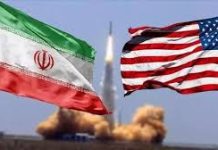Saudi Arabia and other OPEC members have been discussing on the quiet a half-a-million-barrel increase in their combined oil production to keep a lid on oil prices, unnamed sources told Reuters amid growing concern that the Iran sanctions will create a serious shortage in global supply.
The increase could be shared by non-OPEC producers as well, the sources said.
The information contradicts the official Saudi stance expressed at the OPEC+ meeting in Algiers last weekend but, said the sources, Riyadh did not want to make the discussions public in order to avoid upsetting those OPEC members that did not have enough spare production capacity to deploy quickly enough to weather the effects of the Iran sanctions.
“There are only two months left until the end of the year, so why create tensions now between Saudi Arabia, Iran and Russia?” one of the sources said.
Of course, tensions between Saudi Arabia and Iran are anything but non-existent, but Riyadh also wants to keep its co-members of OPEC united for future purposes, such as deciding to start cutting production again.
A cut may become necessary in view of growing U.S. production, which has had Saudi Energy Minister Khalid al-Falih worried: U.S. barrels could contribute to surplus supply if global demand slows down next year.
Indeed, OPEC’s latest estimates about demand and supply feature a 2.4-million-bpd increase in non-OPEC supply in 2019, versus demand growth of just 1.5 million bpd. The non-OPEC supply increase will be led by the United States. The cause for concern is a legitimate one: emerging economies that are leading the rise in demand are reporting weaker economic growth, not least on the back of higher oil prices.
According to Reuters sources, Saudi Arabia could raise production by 200,000-300,000 bpd this month and next, which means its total would reach 10.6-10.7 million by the end of October, from the August 10.4 million bpd.













